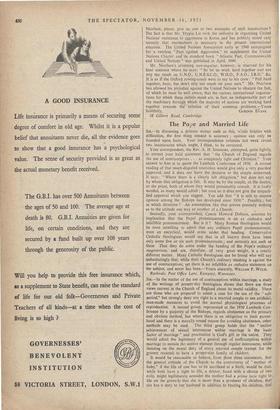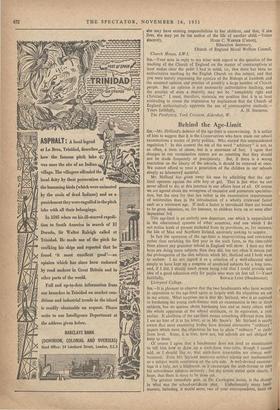SIR,—In the matter of the use of contraceptives within marriage,
a study of the writings , of present-day theologians shows that there are three views current in the Church of England about its moral validity. There are those who are prepared to admit a case for the use of the "safe period," but strongly deny any right to a married couple to use artificial, man-made measures to avoid the normal physiological processes of reproduction. A second group, represented at the 1930 Lambeth Con- ference by a cn a j o ri t y of the Bishops, regards abstinence as the primary and obvious method, but where there is an obligation to limit parent- hood and there is a morally sound reason for avoiding abstinence, other methods may be used. The third group holds that the "unitive achievement of sexual intercourse within marriage is the basic factor of marriage" and procreation is God's gift to the union. They would admit the legitimacy of a general use of contraceptives within marriage to sustain the unitive element through regular intercourse, while insisting on the moral duty of every married couple (except for the gravest reasons) to have a proper-size family of children.
It would be reasonable to believe, from these three statements, that the general attitude of the Church to the controversy of "mother or baby," if the life of one has to be sacrificed at a birth, would be that, while both have a right to life, a doctor, faced with a choice of two evils, might legitimately consider the mother had a prima facie right to, life on the grounds that she is more than a producer of children, that she has a duty to her husband in addition to bearing his children, that she may have existing responsibilities to her children, and that, if she lives, the may yet be the author of the life of another child.—Yours
Education Secretary,
Church of England Moral Welfare Council.
Church House, S.W.!.















































































 Previous page
Previous page